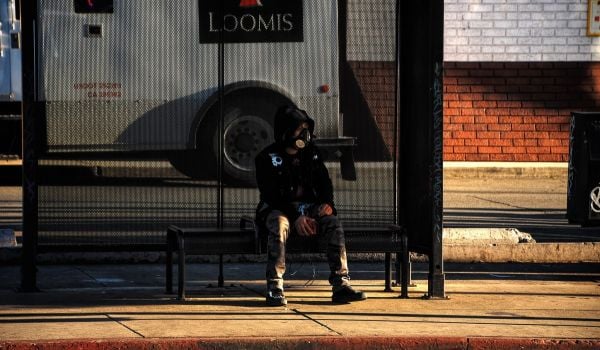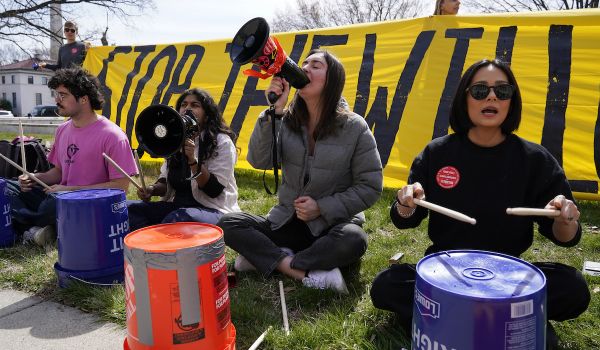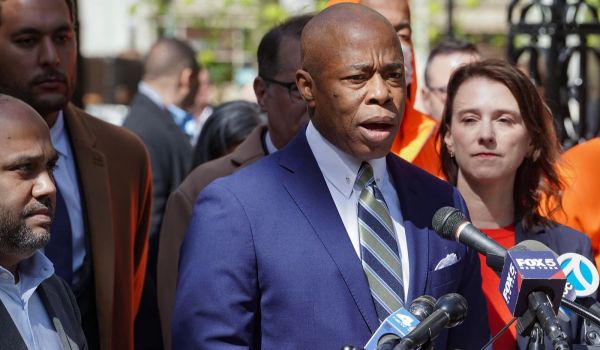In the early days of the Great Depression, with few other sources of funding to rely on, voters of six Northern California counties approved issuing a municipal bond to raise $35 million for the construction of the Golden Gate Bridge. It was a bitter fight, requiring citizens to put up their homes, their farms and their business properties as collateral.
In the shadow of that bridge, San Francisco-based fintech company Neighborly has built a platform that will offer users the chance to once again play a more tangible role in the building (and maintenance) of bridges, tunnels, libraries, parks, firehouses, affordable housing and other projects funded through the municipal or “muni” bond market. Nationwide, there are $3.8 trillion in outstanding muni bonds, and another $400 billion or so that are issued each year. While much attention gets paid to the Trump administration’s promised infrastructure plans, the fact is, the muni bond market is still the main way infrastructure gets financed in the U.S.
While individuals hold more than 75 percent of muni bonds, they’re nearly all owned indirectly through a retirement account or mutual fund. Muni bond market regulations have effectively locked out the average person from being able to purchase them directly. As a result, people simply don’t know they’re investing in their own cities, or each other’s cities. It’s not all as pretty as the Golden Gate Bridge, by the way; you may be invested in a Chicago muni bond issued to raise funds for payments to victims of police brutality.
Through Neighborly, individuals once again have opportunities to purchase bonds directly, including an upcoming issue from New York’s state housing finance agency (the issuance originally planned to open Tuesday, but was postponed). It will be the first time the N.Y. state housing agency has tapped Neighborly’s growing network of 11,000 investors.
Austin sold muni bonds on Neighborly to help raise funds for purchasing and preserving historic venue spaces, and facilitating the acquisition of new spaces, with the goal of supporting the local music industry.
Somerville, Massachusetts, plans to sell muni bonds on Neighborly to increase the accessibility and quality of green spaces for community members. Burlington, Vermont, raised funds for a bike path, tree planting, stormwater management, sidewalk replacement and improving waterfront access to Lake Champlain. Lawrence, Kansas, raised funds to buy a new fire truck. Cambridge, Massachusetts, sold out a $2 million muni bond offering in just a week, which will invest in schools, water and energy infrastructure, and parks.
While not technically a muni bond issuer, the Housing Trust of Silicon Valley, a community development financial institution, issued bonds on Neighborly to support multifamily building loans, as well as single-family homebuyer down payment assistance.
One of the reasons why muni bonds are an attractive investment is that the interest earned on them is exempt from federal taxes. Some municipal bonds are exempt from state income taxes as well. But with comprehensive tax reform looming at the federal level, there is a risk that muni bonds will lose their tax-exempt status. So far, bond investors are currently betting that status will hold.
This article is part of The Bottom Line, a series exploring scalable solutions for problems related to affordability, inclusive economic growth and access to capital. Click here to subscribe to our Bottom Line newsletter.

Oscar is Next City's senior economic justice correspondent. He previously served as Next City’s editor from 2018-2019, and was a Next City Equitable Cities Fellow from 2015-2016. Since 2011, Oscar has covered community development finance, community banking, impact investing, economic development, housing and more for media outlets such as Shelterforce, B Magazine, Impact Alpha and Fast Company.
Follow Oscar .(JavaScript must be enabled to view this email address)







_600_350_80_s_c1.jpg)










